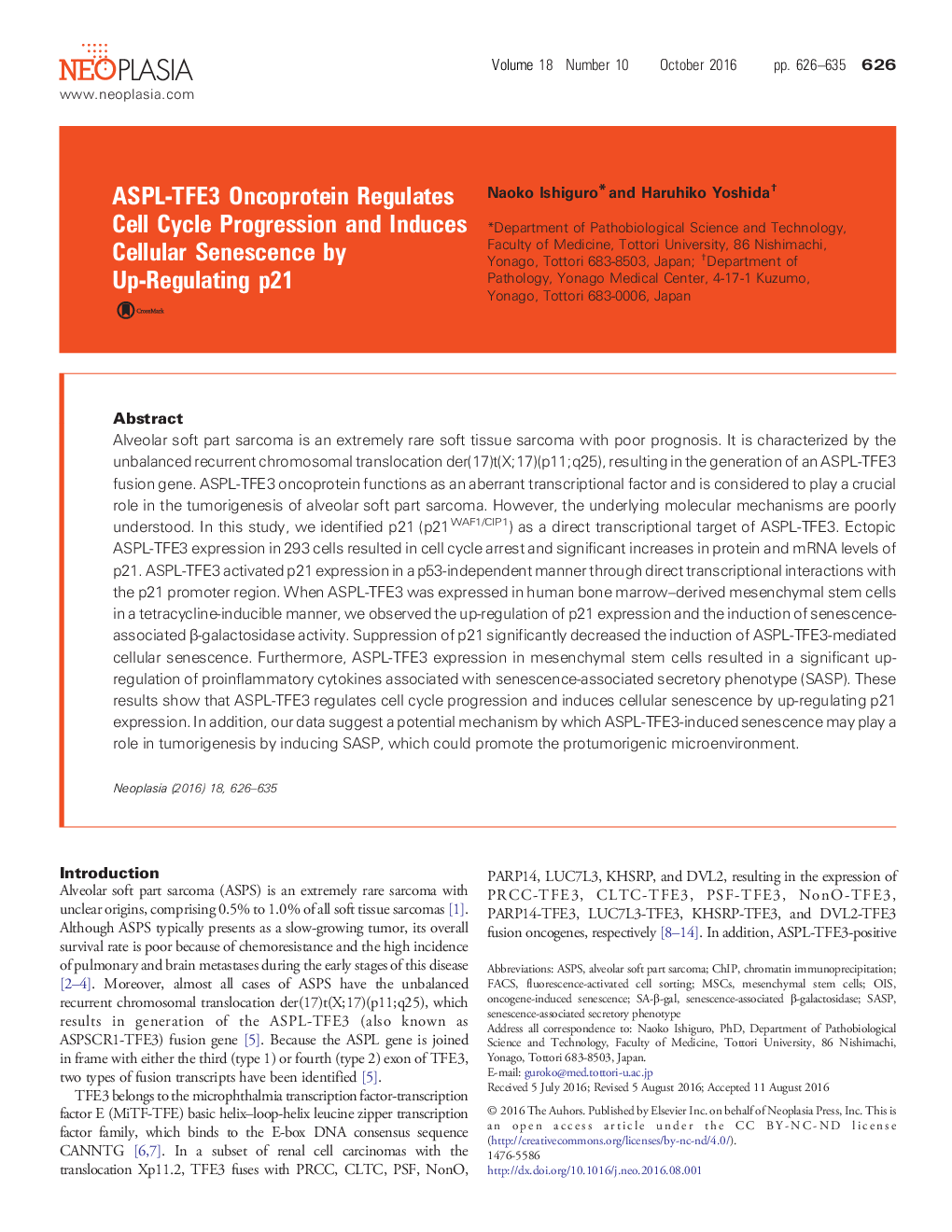| Article ID | Journal | Published Year | Pages | File Type |
|---|---|---|---|---|
| 8457102 | Neoplasia | 2016 | 10 Pages |
Abstract
Alveolar soft part sarcoma is an extremely rare soft tissue sarcoma with poor prognosis. It is characterized by the unbalanced recurrent chromosomal translocation der(17)t(X;17)(p11;q25), resulting in the generation of an ASPL-TFE3 fusion gene. ASPL-TFE3 oncoprotein functions as an aberrant transcriptional factor and is considered to play a crucial role in the tumorigenesis of alveolar soft part sarcoma. However, the underlying molecular mechanisms are poorly understood. In this study, we identified p21 (p21WAF1/CIP1) as a direct transcriptional target of ASPL-TFE3. Ectopic ASPL-TFE3 expression in 293 cells resulted in cell cycle arrest and significant increases in protein and mRNA levels of p21. ASPL-TFE3 activated p21 expression in a p53-independent manner through direct transcriptional interactions with the p21 promoter region. When ASPL-TFE3 was expressed in human bone marrow-derived mesenchymal stem cells in a tetracycline-inducible manner, we observed the up-regulation of p21 expression and the induction of senescence-associated β-galactosidase activity. Suppression of p21 significantly decreased the induction of ASPL-TFE3-mediated cellular senescence. Furthermore, ASPL-TFE3 expression in mesenchymal stem cells resulted in a significant up-regulation of proinflammatory cytokines associated with senescence-associated secretory phenotype (SASP). These results show that ASPL-TFE3 regulates cell cycle progression and induces cellular senescence by up-regulating p21 expression. In addition, our data suggest a potential mechanism by which ASPL-TFE3-induced senescence may play a role in tumorigenesis by inducing SASP, which could promote the protumorigenic microenvironment.
Keywords
Related Topics
Life Sciences
Biochemistry, Genetics and Molecular Biology
Cancer Research
Authors
Naoko Ishiguro, Haruhiko Yoshida,
